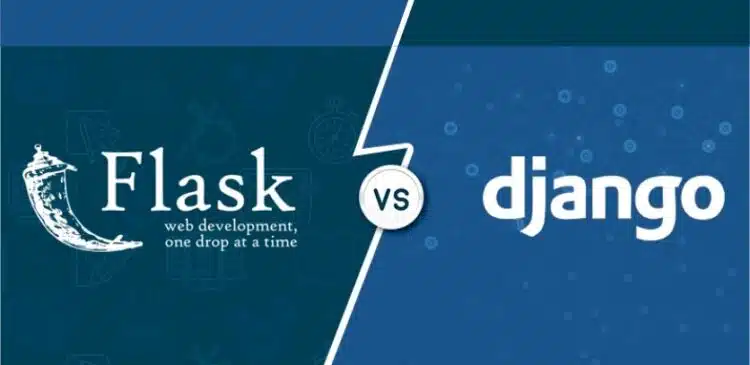What’s the Difference Between Flask and Django?

Two of the most popular Python web frameworks are Flask and Django, yet they have their unique features. Flask is a micro-framework that allows you to create small- medium-scale applications. It is flexible and straightforward. Hence, it is perfect for small to medium-sized applications. Django is a full-stack framework with a built-in admin interface and an opinionated approach suitable for larger and more complex projects. However, this differs from Django, which is just a backend framework. Flask allows developers to have more control over the individual components of the app, while Django is based on the approach of batteries-included that offers many built-in features. Understanding these disparities can help you select the framework for your project requirements.
What is Flask and its key features?
Developed as a lightweight and flexible web framework for Python, Flask gives a simple way of creating web applications. Flask is distinguished by its complexity and flexibility as it is the best match for small to medium-sized applications, and hence, it is the developers’ favorite. This framework’s notable features are the built-in development server, unit testing support, and Jinja2 for template engine creation of dynamic web pages. Moreover, Flask has URL routing, session management, and secure cookie support that developers can employ to develop web apps that are fast and secure. Understanding these primary features of Flask well is critical as they will help you exploit the full potential of this framework in your web projects.
What is Django and its key features?
Django, a Python-based high-level web framework, is known as the “batteries-included” philosophy. It comes with all the necessary features and tools for website development. Django emphasizes the time-saving nature and the pragmatic design for building data-oriented websites, which makes it a perfect choice. It has many excellent features, such as an object-relational mapper for communicating with the database, an admin interface for managing content, and an excellent templating system for creating dynamic web pages. Secondly, by default, Django has some security features, internationalization support, and the ability to scale for websites with high traffic. Knowing these essential features of Django is a crucial thing that you need to consider to make it a successful tool in the web development projects for which you use this robust framework.
How do Flask and Django differ in terms of scalability and complexity?
The most important thing to remember is that Flask and Django differ in the scaling and complexity management methods. Flask is suitable for small to medium size apps, as it has a simple design and focuses on simplicity. Being lightweight is the main reason for its flexibility and adjustability, making it the best solution for most projects where scalability is not the top concern. Alternatively, Django’s “batteries-included” and fast-paced approach suits larger, more complicated projects. Its functionality is excellent, and scalability is very powerful, so it is a preferred choice for managing websites that get a lot of visitors and complex web applications. The uniqueness of scalability and complexity issues of Flask and Django must be comprehended to select the one that perfectly matches your web project.
What are the differences in terms of community and ecosystem support?

While comparing with Flask and Django, one should consider the support provided by the community and ecosystem for each framework. Flask adopts a more distributed community-based approach as it is less bulky and optimal, and developers here use a variety of third-party extensions and libraries to enhance its functionality. The decentralization gives for more flexibility and adjustment and, at the same time, could result in a more fragmented support network. On the other hand, Django’s ‘batteries-included’ approach has achieved a more centralized and solid community and ecosystem support. The frameworks that come as packages with most of the features and conventions already built in promote a more unified and coherent way of thinking and help developers have one single and structured support network. Acknowledging and understanding those differences in community and ecosystem support is of great value while selecting the framework applicable to collaborative and developmental project needs.


 Bill Yeager, Co-Owner of High Point SEO & Marketing in CT
Bill Yeager, Co-Owner of High Point SEO & Marketing in CT